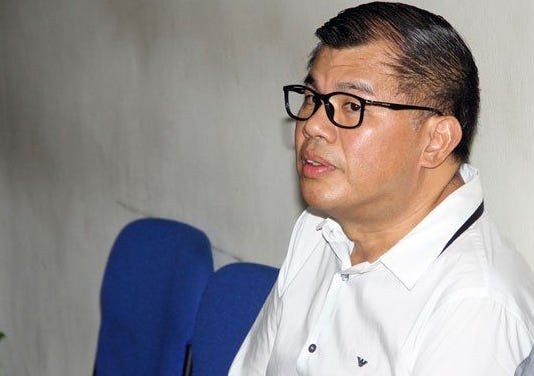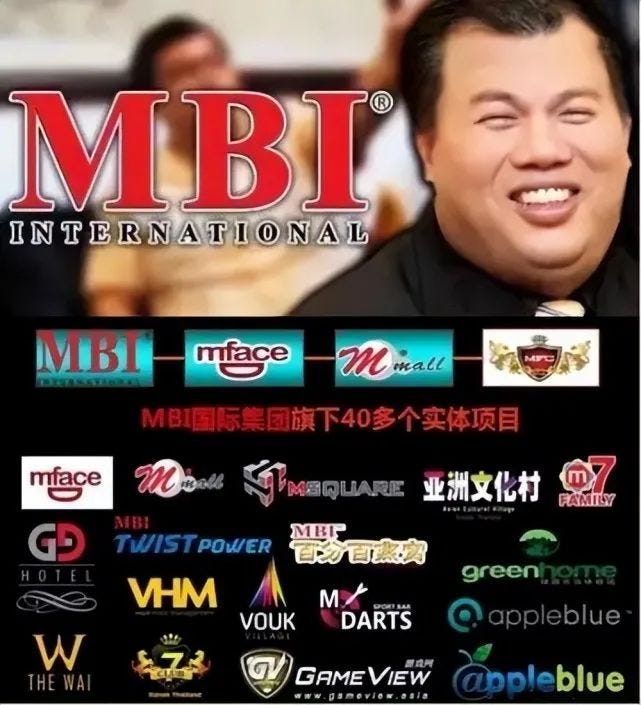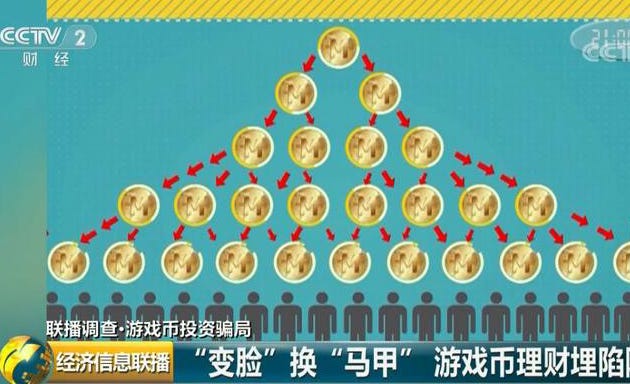Revealing the Extradited Criminal Zhang Yufa of MBI: From Malaysia to Hong Kong, Multi-Billion-Dollar Ponzi Scheme Fraud
Author: Yu Yezi
Original Link: https://www.panewslab.com/zh/sqarticledetails/4je9qex2.html
Throughout history, acts of fraud motivated by greed have always been despised, but the person we are discussing today is far beyond the ordinary:
He scammed 2 million Chinese people, with the amount defrauded reaching a staggering 500 billion yuan. The word "evil" is insufficient to describe Zhang Yufa.
Who is Zhang Yufa?
In October 2019, on the streets of Kuala Lumpur, Malaysia, over 100 Chinese people knelt in unison, weeping and begging the Malaysian government to intervene on their behalf, which quickly went viral online.
Why did these Chinese citizens go to Malaysia to seek help from the government?
It turns out they all shared a common identity—they were victims of the MBI Ponzi scheme involving virtual currency.
When this group reached the MBI headquarters in Kuala Lumpur, they found it completely abandoned, with no way to recover their losses.
With their money vanished and all hope lost, their despair led them to kneel and cry on the streets of Malaysia.
The mastermind behind all of this, the founder of MBI, is none other than Zhang Yufa.
Some say he was a natural-born businessman who strayed from the right path; others say he is the "master of Ponzi schemes" and the biggest fraudster in Malaysia.
Zhang Yufa, originally from Guangdong, is a third-generation Chinese Malaysian.
In his early days in society, he dabbled in various small businesses, but none made much of an impact. In 2008, when the global financial crisis struck, Malaysia was not spared, and the economy slumped.
It was precisely during this period of widespread economic downturn that Zhang Yufa, with a gambler's mentality, decided to open a café—Red Island Café.
Did he aim to promote premium coffee and grow the business? No, he used it as a front for a Ponzi scheme:
"Friend, how about earning money while drinking coffee?"
For an investment of just 6,000 Malaysian Ringgit (less than 10,000 RMB), you could purchase shares in the "Red Island Café" and become a shareholder.
In addition, the company promised to provide you with a 100 Ringgit (about 150 RMB) coffee voucher each month and a 5% return on your investment. In five years, your return would be three times your original investment!
Who wouldn't be tempted by such a low-risk, high-reward opportunity?
As more and more "Red Island Cafés" popped up on the streets, the number of investors grew exponentially.
Within a few months, Zhang Yufa had attracted over 3,000 "shareholders," raking in millions.
But the scheme couldn't hide the fact that the physical stores were mere shells, and the poor service at the cafés quickly drove customers away.
"When the waiter put a menu in front of us, we were shocked. Out of 17 items on the menu, 10 were marked as unavailable," said one customer who had visited the café.
By the end of 2008, before the shareholders could recover from the economic crisis, they were informed that Red Island Café had gone bankrupt, and the millions in funds had vanished.
It was only then that everyone realized they had been scammed. They rushed to file reports with the police, sued, and sought justice.
Later, Zhang Yufa and his partners were convicted of fraud by the Malaysian government.
However, the cost of the scam was extremely low: the slippery Zhang Yufa managed to shift most of the blame onto his partners. He spent just one day in jail and paid a fine of 160,000 Ringgit, and that was the end of it.
The victims were left with nothing, while Zhang Yufa, now richer and more ambitious, moved on.
After this, the labels attached to him became even more surreal.
In 2015, when Zhang Yufa re-entered the public eye, he had transformed into a bona fide tycoon. His MBI Group was involved in more than 40 ventures, including film, real estate, supermarkets, and hotels.
Zhang Yufa himself was rumored to have powerful connections—some even claimed he was a cousin of Malaysia's founding father, Tunku Abdul Rahman, and that even high-ranking officials from the Malaysian government supported him.
For a time, Zhang Yufa and his MBI Group seemed to be on top of the world.
However, this MBI Group, which appeared to have endless resources and prospects, would later become a nightmare for countless victims.
How did MBI Group rise to prominence?
To understand that, we have to look back at its predecessor, the "Dream Come True Group" and the SMI system in Hong Kong.
In 2009, just a year after the collapse of Red Island Café, Zhang Yufa and his partners quickly established the "Dream Come True Group," claiming a return on investment of 70% to 90%—guaranteed, no less.
Such high returns would seem unrealistic and unscientific to anyone thinking clearly.
But driven by greed, once Zhang Yufa painted the picture, investors flocked in.
How did the Dream Come True Group help people realize their dreams?
After purchasing projects under the Dream Come True Group, investors were classified into five different levels—Gold, Silver, and so on—depending on the amount they invested. Each month, they would receive corresponding returns, paid in virtual currency. If they successfully recruited new members, they would receive generous rewards from the platform.
In essence, it was a scheme where people paid to buy virtual products, earned interest passively, and recruited others to bring in more victims.
This was classic pyramid scheme behavior! Yet, thanks to Zhang Yufa's packaging, the scheme attracted billions of yuan from Malaysia and Taiwan.
It wasn't until 2013, when Zhang's partner Wang Zihua was arrested by the police, and the "Dream Come True" website was completely shut down in 2014, that investors began to see the true face of the scam.
Interestingly, just before things went south, Zhang Yufa conveniently "split" from Wang Zihua and went solo. This allowed him to evade legal consequences and led him to connect with a "tech company" in Hong Kong called SMI, which primarily promoted gaming.
On the surface, SMI touted game-based financial management, but in reality, it was involved in token market investments—a front for another pyramid scheme. However, it was managed with meticulous detail, featuring both online virtual currency and offline physical stores, making the fraudulent system more organized and covert.
With his sharp eye for opportunities, Zhang Yufa saw a new business potential in SMI, quickly infiltrating its inner workings and "learning" from it.
Not long after, Chinese authorities caught wind of SMI's suspicious activities, swiftly classified it as a pyramid scheme, and arrested its leaders in 2015.
Meanwhile, Zhang Yufa, having returned from Hong Kong "fully trained," not only escaped punishment but also further integrated and refined the experiences he had gained from the Dream Come True Group and SMI. This led to the creation of MBI Group.
In 2015, as Bitcoin gained explosive popularity, MBI Group rode the wave of virtual currency, making a grand entrance and attracting a large following.
How Did MBI Manage to Defraud 500 Billion Yuan from the Chinese People?
MBI promoted a virtual currency called Yiwubi, commonly known as M Coin, which Zhang Yufa claimed could only appreciate in value. This currency was issued and circulated on a "game management platform" that he had established.
To become a member, users had to pay a membership fee of at least 700 yuan and purchase virtual currency equivalent to the fee, earning membership levels ranging from one to six stars.
Once enrolled, members could receive annual returns ranging from 10% to 200%. In other words, the more money you invested, the higher your returns. If you actively recruited new members, you could also earn additional bonuses such as direct referral rewards and leadership rewards.
Scammers promised that M Coin was issued in limited quantities globally, and that the buying and selling of these tokens would create a self-sustaining internal market. They claimed that with a single global stock and centralized funds, M Coin could only rise in value and never fall.
But was this really the case? The truth was that profits could only be guaranteed by continuously recruiting new members and siphoning off their investments.
To lure in more victims, MBI opened various physical stores under its brand, where users could spend M Coins on shopping, lodging, massages, manicures, and other services.
Moreover, Zhang Yufa generously bribed government officials at various levels to protect and support his operations. He also engaged in widespread charitable activities under the MBI banner, boosting the company’s public image.
However, as time went on and the number of users surged, skepticism began to grow:
Although account balances seemed to be increasing, why were withdrawal processes becoming increasingly complicated?
Investing 1 million yuan was a matter of seconds, but withdrawing 1 million yuan? Sorry, due to "various reasons," the system would be slow, and you could only withdraw a maximum of 10,000 yuan per day.
When some people started to suspect that it might be a scam, the die-hard fans reacted oddly: they were the first to jump to its defense.
"He taught us how to invest, and we trust him completely. We even call him 'Papa Zhang' out of respect. To us, he is like a family patriarch."
But what these devotees didn't realize was that their "Papa Zhang," whom they trusted so much, was like a vampire, frantically amassing 500 billion yuan!
In 2017, China and Malaysia conducted a joint law enforcement operation to crack down on the MBI pyramid scheme.
That same year, MBI continued to issue another virtual currency, WCG (Walker Gold), masquerading as a blockchain project to swindle even more money.
By the end of June, Zhang Yufa was arrested by Malaysian police on charges of money laundering, and over 90 of his accounts containing a total of 209 million yuan were frozen.
However, Zhang Yufa, with his extensive network and influence, was soon released on bail and continued his activities as if nothing had happened.
Subsequently, numerous warnings were issued to the public, emphasizing that MBI was a pyramid scheme. Police in cities like Shanghai also successfully dismantled several of MBI's scam operations.
Despite the growing awareness, many people remained blinded by their trust in Zhang Yufa and MBI:
"Zhang Yufa's wisdom is beyond comprehension, even if you had a million brains. We worship him; we have faith in him."
It wasn't until 2019, when MBI completely collapsed and its headquarters disappeared, that these devoted followers, finally realizing the truth, tearfully turned to the police for help: "Arrest the pyramid scheme leader and return our hard-earned money."
By that time, the number of victims who had invested in MBI within China had reached 2 million.
After MBI's façade finally crumbled and the scheme came to an end, the 500 billion yuan that had been swindled vanished without a trace. The very people who once idolized Zhang Yufa now harbored intense hatred towards him.
This culminated in the scene described at the beginning of the article: hundreds of Chinese citizens traveling to Malaysia to petition with tears in their eyes.
Some even went as far as attempting to kidnap Zhang Yufa's son, hoping to use his life to force Zhang Yufa to return the money. While this action was both foolish and extreme, it clearly reflected the victims' desperation.
So where was Zhang Yufa, the mastermind behind all this, during this time?
He quietly fled to Thailand and took refuge in a temple in Songkhla Province, where he became a monk!
Did he believe that the compassion of the Buddha could absolve his sins?
Zhang Yufa offered a "pious" explanation: he shaved his head and became a monk to cultivate himself and seek spiritual peace.
Absurd! If he had even a shred of reverence or genuine intent to better himself, how could he have driven millions of families to ruin, tearing them apart and bankrupting them?
What's even more absurd is that Zhang Yufa claimed that this religious conversion was only temporary. Since when does becoming a monk come with a short-term option?
And just how short was this "short-term"? Seven days.
So, was this seven-day stint as a monk a genuine retreat for spiritual reflection, or was it a cunning attempt to make it harder for the police to capture him, buying him more time?
This con artist's craftiness truly knows no bounds.
One might have expected Zhang Yufa to live in hiding in Thailand, but instead, he enjoyed a life of ease while on the run—bribing Thai officials, buying land, and establishing businesses, all while continuing to profit and enjoy himself.
It wasn't until July 22, 2022, that the police forces of China, Malaysia, and Thailand collaborated, leading to Zhang Yufa's formal arrest by Thai authorities on charges of money laundering.
On July 26, Zhang Yufa was officially extradited to China to face trial.
Thus, the happy life of this notorious con artist finally came to an end.
What awaits him now is the harsh punishment of the law.
The Buddhist saying goes: "As you sow, so shall you reap." Zhang Yufa, this villain who has now reaped what he sowed, deserves no sympathy—those who commit evil inevitably meet their downfall.
But what about the victims who suffered at Zhang Yufa's hands?
There's a saying: pitiable people often have something detestable about them as well.
Was Zhang Yufa's string of Ponzi schemes truly so clever and seamless? Was it that the scammer was too smart, or that the victims were too foolish?
By now, the tactics used by scammers like Zhang Yufa, the Ponzi scheme, are all too clear:
● No real product; the company itself does not generate profit.
● Promises of returns far above the market average.
● An entry fee is required.
● New recruits must be brought in, with profits driven by the influx of their money.
Who doesn't dream of getting rich overnight? But true wealth comes from walking the right path.
There’s no such thing as a free lunch, yet some still believe they are the chosen ones, destined to be struck by that falling pie from the sky.
Unfortunately, what often falls from the sky is not a pie, but a trap.
Now that Zhang Yufa has fallen, who will be next?
There is only one MBI, but Ponzi schemes are far from being eradicated.
This is because the root of such schemes is greed—the greed inherent in human nature.
● References
1. Mingjin.com | The Fake Monk Who Scammed 500 Billion Yuan from Chinese People Has Finally Fallen!
2. Thai Reports | Who Is This "Papa Zhang" Who Scammed 500 Billion Yuan from Chinese People and Was Recently Arrested in Thailand?
Follow us
Twitter: https://twitter.com/WuBlockchain
Telegram: https://t.me/wublockchainenglish









